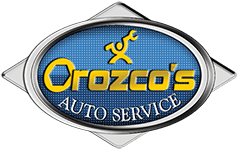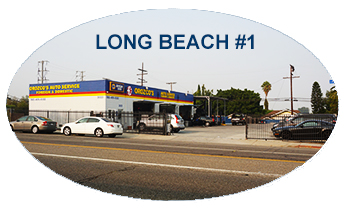
(ABS Brake Repair) Anti lock brakes help prevent your vehicle’s tires from skidding when you brake hard, especially if the road is wet or slippery. The amount of force and control needed to accomplish this puts significant strain on your ABS system with each use, which means that it will eventually start to fail.
Until the mid 1980s, anti-lock brakes were not available on vehicles. There is still no legal requirement for vehicles today to be equipped with ABS, but almost every new vehicle sold has an ABS system. ABS works the same way as a traditional braking system, but improves your ability to stop before slamming into traffic on the 710 by actively monitoring wheel speed.
A vacuum booster, also known as the brake booster, amplifies the amount of force created when you step on the brake pedal and transfers it to the master brake cylinder, which is filled with brake fluid. Brake lines then transport fluid to the hydraulic brake on each wheel, activating them. The system can tell if you stomp down hard to avoid an accident or just tap lightly to slow your speed in traffic and adjust accordingly.
However, if you slam on the brakes at high speed in slippery conditions, your brakes won’t be able to grip the road surface but instead lock up and start to slide. If your front wheels lock and start sliding, losing traction, then you will be unable to turn.
To try to avoid this, drivers were taught to “pump” their brakes in the event of a panic stop. By quickly pressing, releasing, then pressing the brake pedal again, the wheels would keep spinning and the driver would be able to maintain control.
Anti lock brake systems were created to mimic this effect automatically. ABS uses a set of sensors to monitor wheel speed and can pump your brakes up to fifteen times per second. If the system detects a sudden loss of speed in any wheel, it prevents that wheel from braking until traction is reestablished.
If you brake hard in a vehicle with ABS, you may feel a hard pulsing from the pedal. This is normal, and means that your system is working. You should never pump the brakes yourself during an ABS stop, since this will prevent the system from working.
There are several signs of brakes that are starting to wear. A high-pitched squeal or low grinding noise when the brakes are applied likely means that they are worn out and need replacement.
Clicking sounds may mean that you have a broken spring, and a repetitive thump could point to warped brake drums or rotors. Your vehicle may also shake when you brake.
Pulling to one side when braking is often due to leaking brake pads or lines, or improper brake alignment. It is also a good idea to test out your stop distance from time to time. If it takes too long or your brakes feel soft, come in to Orozco’s Auto Service of Long Beach today for an inspection.
ABS brakes often have special dash warning lights if their speed sensors start to fail, but you may also notice less intense brake pulses when stopping on slick surfaces, or unnecessary ABS pulsing on dry pavement.
This may be due to corroded wiring harnesses or worn electrical connections, or the fault of a broken speed sensor. If the the anti-lock braking system light comes on and stays on when you start the car, take it in for service.
The cost of a brake repair varies based on the make, model and year of your vehicle along with the severity of your problem. ABS wheel sensors cost anywhere from $100 to $200 each, while ABS control modules run from $200 up to $600 apiece. Adding labor, a “typical” ABS repair could easily run upwards of $1000 to replace a few sensors and test the new system.
Although the total seems expensive, the alternative is much more costly: Major body shop work or vehicle replacement after an accident on slippery roads.
If you have questions regarding ABS Brake Repair contact Orozco’s Auto Service at any of our convenient locations in Long Beach, Bellflower, Garden Grove or Fullerton!
 Auto Repairs Near You – Get & Keep Your Car “Road Ready”
Auto Repairs Near You – Get & Keep Your Car “Road Ready” 









